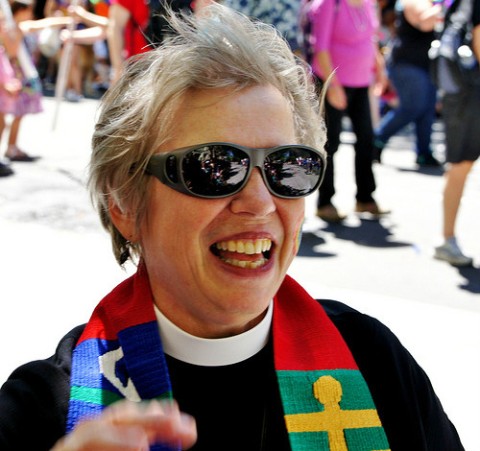Learning curve
Amy Plantinga Pauw's article about theologian Elizabeth Johnson sent me to the bookshelves to retrieve Johnson's 1993 book She Who Is: The Mystery of God in Feminist Theological Discourse. I loved the book, learned from it and underlined passages like these: "Absolutizing any particular expression as if it were adequate to divine reality is tantamount to a diminishment of truth about God" and "An encounter with holy mystery lies at the root of all religious doctrine."
Now another book, Quest for the Living God: Mapping Frontiers in the Theology of God, has landed Johnson in trouble with the Committee on Doctrine of the U.S. Conference of Bishops. You would think the committee would have learned that the most effective way to express disagreement with a theologian is to ignore her or him. Fortunately for the rest of us, the bishops have not learned; their critique has dramatically enhanced interest in Johnson and her work. Johnson's thinking is openly ecumenical, yet she does not dismiss the traditions of her church. She notes that in recent years women's religious orders (she is a member of one) have become contested sites for shifting understanding of clerical power.
It is a stretch for a mainline Protestant, particularly a male, to get his mind around the power of the monastic experience for women who are denied ordination by their church. We can, however, observe and celebrate what we learn from our female colleagues: primarily, that our own sense of ordained ministry is unthinkable without them.





